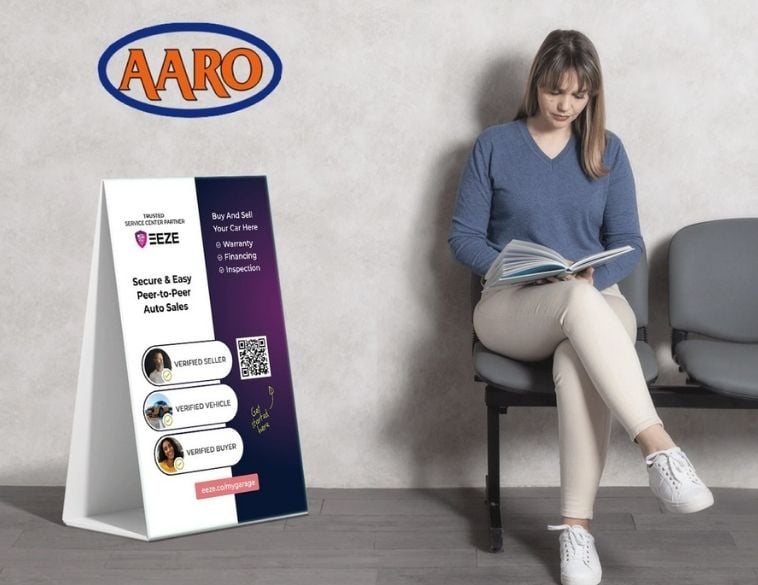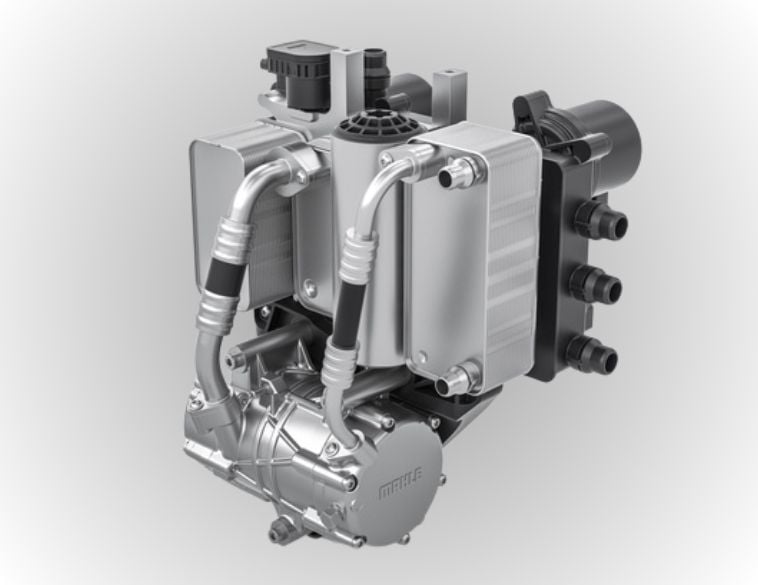Derek Suen has been deservedly recognized for his contributions to the automotive aftermarket.
On April 29 2020, the Automotive Industries Association of Canada (AIA Canada) hosted its annual general meeting (AGM).
Among the announcements was the aftermarket Young Leader of the Year Award on behalf of Young Professionals in the Aftermarket (YPA), which was bestowed upon Derek Suen, Manager R&D/New Product Development at Dorman Products.
In an exclusive interview with CarCare Business, Derek shared his thoughts on being recognized by his peers and the industry, as well as providing a bit of information into his professional background.
He also shared some tips to help and inspire young people considering a career in the industry, as well as his own perspectives on the COVID-19 pandemic currently impacting all of us.
Derek, congratulations on receiving the Young Leader of the Year award. How does it feel to be recognized for your achievements?
It is huge honour in being recognized like this and I am very grateful for being named as Young Leader of the Year.
The automotive aftermarket is what some call a ‘big/small’ industry. What I mean by that is that as big of an industry as it is in terms of what we do and the opportunities available, it also feels like a family, where lots of us know each other, whether we are involved as manufacturers, distributors or customers.
I am truly humbled to be recognized by my peers and people in the industry, as well as being incredibly grateful in being able to work and contribute to a thriving sector of Canada’s economy.
Back tracking a little bit, can you tell us how you got started in the automotive aftermarket?
Before I actually got into the aftermarket, I worked for several consumer-packaged good companies but in some type of manufacturing capacity.
These included working in supply-chain, finance or accounting. Based on the experiences I learned, the aftermarket was not a far extension from this in terms of how products were marketed and sold.
The transition was a challenge at first, but I thoroughly enjoyed learning the technical aspects of this industry and becoming better informed and educated, first as a consumer and then as an industry professional.
From what we understand, you originally studied economics at university, is that correct?
I graduated from Wilfrid Laurier University in Waterloo, Ont., with an Economics degree in 2006.
I joined Dorman Products in 2010 and in 2016 I returned to Wilfrid Laurier to complete a Master of Business Administration, while I was working full-time. I am extremely grateful that Dorman granted a full scholarship to achieve this, I don’t think I could have afforded this otherwise!
One of the best courses I also took was though the Automotive Business School of Canada at Georgian College in Barrie, Ont. This Introduction to the Aftermarket program proved extremely helpful in teaching the mechanics of various systems and platforms to better familiarize myself with industry stakeholders and customers.
Can you tell us a little about some of the roles you’ve had while working in the aftermarket?
The roles as Supply-Chain Analyst, Operations Financial Analyst and Materials requirement planning before joining Dorman gave me a good foundation on which to build.
Since joining the company I’ve performed various jobs within my role over the years. While new Product Development/R&D has been most of my focus, I’ve spent time doing core buying, technical product sales training, market research, and various brand marketing initiatives.
Can you tell us about your current role and responsibilities?
I have a unique position whereby I am responsible for converting customer and channel feedback into new product development and sales initiatives.
Within our building, we simply call it ideation – the ability to find ‘NEW’ ideas for the company to invest in and execute.
Over the years, I’ve been very fortunate to have had a very supportive boss (and mentor) who has taught me how to be an effective people manager.
Since I joined, we’ve also significantly expanded our team both across Canada and the U.S.
Based on your own experiences, what advice would you give to young people about careers in the aftermarket?
If I could go back in time, I’d probably tell myself that the first job you do is probably NOT going to be your dream job, but it gets your ‘foot in the door’ so to speak. Learn as much as you can from it and try to find areas that you are interested in that relate to what you are doing.
Recalling a previous role in accounting, I can still reminisce about the love-hate relationship I had with spreadsheets (magnified over many late nights) at the time.
Looking back now, while it was a grind back then, that experience has since proved incredibly useful in developing a strong foundation of business acumen.
What do you think is key to ensure you can really reach success and maximize your potential in this industry?
I feel it is very important to find a mentor/advocate or coach to help provide guidance in areas that you may not be familiar with. These people can be inside, or outside the company you work in.
The automotive aftermarket industry has so many talented people that may soon retire that have so much institutional knowledge! It’s much easier to learn from other people’s experiences and teachings than by your own mistakes!
Be open minded and willing to try different things, even if you might fail at them. This helps to provide context to things that you like/don’t like or even find out what you may be good at.
In my case, one of them was public speaking, which I didn’t know I’d like doing until I tried it. Now a good part of my role includes delivering presentations and speeches, often in front of large groups of people.
Is there anything you can perhaps talk about related to the current COVID-19 pandemic and some of the steps we can do as individuals and an industry to navigate ourselves through it?
I think one of the key things is being able to leverage technology to its greatest capability in order to stay ‘connected’. Internally, we have been doing lots of video conferencing via Microsoft Teams, Skype, or Zoom to socialize as much as we can.
Regarding customer interaction, the ability to leverage webinars to continue to learn, train, and sell products/services to your customers is crucial.
We’re also finding that working remotely and leveraging the technology available allows us to connect with more of our customers and on a more regular basis.
Do you have any thoughts on what might happen once the lockdown restrictions are lifted?
There is no question that COVID-19 has changed the way we operate.
I think a big question is how will things evolve? Will we go back to the old way of doing business, or will we continue maximizing the use of technology such as Microsoft Team, Skype and Zoom to reach our customers?
Based on what has happened in the past, this new technology will likely complement our traditional skills and procedures, giving us more tools so we can be even more effective, both as businesses and an industry.



